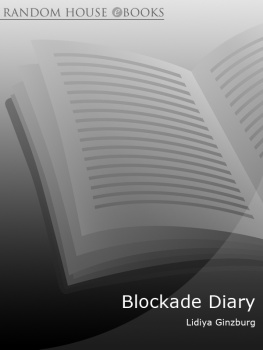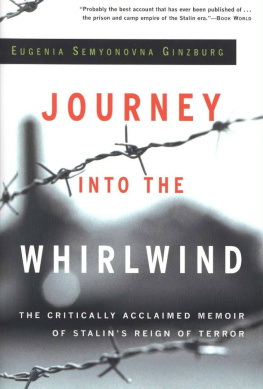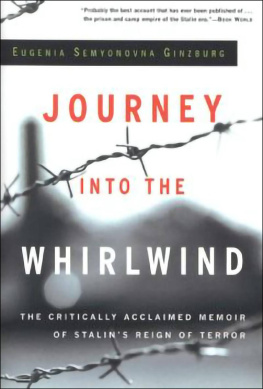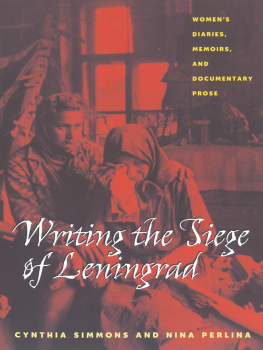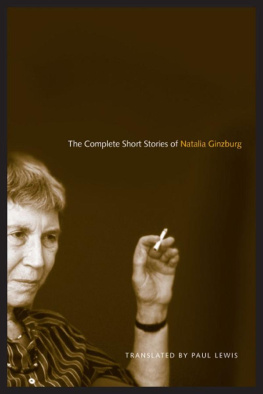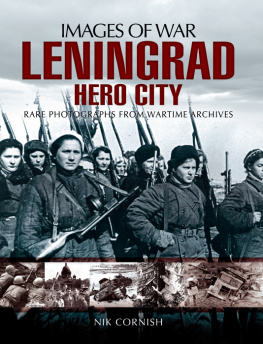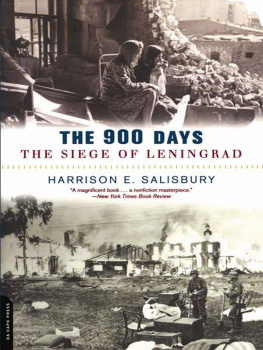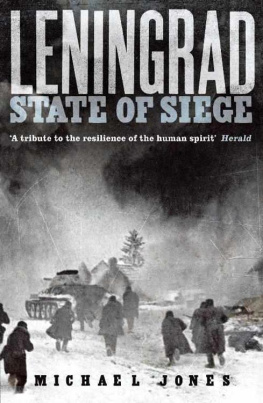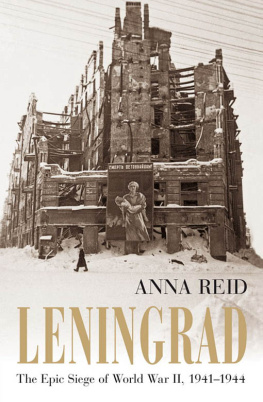
About the Book
Tells more of the experience of life in twentieth-century Russia than many multi-volume novels Aleksandr Kushner
The 900-day siege of Leningrad (194144) was one of the turning points of the Second World War. It slowed down the German advance into Russia and became a national symbol of survival and resistance. From her own experience as a survivor of the blockade and using facts, conversations, and impressions collected over many years, Lidiya Ginzburg has created a remarkable everyman hero in whom she distils the collective experience of life under siege. Though the author may depict, often painfully, the hunger and harrowing conditions of that period, the reader takes away a different impression: the dignity, vitality and intellectual resilience of the thinking mind as it records and makes sense of extreme experience. This first translation of a classic work of documentary fiction, reminiscent of the novels of Primo Levi and the philosophical narratives of Albert Camus, introduces a major twentieth-century Russian writer to English-language readers.
Lidiya Ginzburg (190290) was often at odds with the Soviet literary establishment, and much of her writing had to be confined to the desk drawer. She survived the purges, the blockade and the anti-Semitic years of the 50s to become a friend and inspiration to the postwar generation of Petersburg poets, including Joseph Brodsky and Aleksandr Kushner. Eventually, in the 60s and 70s she was able to publish her literary criticism and theory, but it was not until 1984 that Ginzburg published Blockade Diary in the journal Neva.
Lidiya Ginzburg
BLOCKADE DIARY
Translated from the Russian by Alan Myers
With an Introduction by
Aleksandr Kushner
This eBook is copyright material and must not be copied, reproduced, transferred, distributed, leased, licensed or publicly performed or used in any way except as specifically permitted in writing by the publishers, as allowed under the terms and conditions under which it was purchased or as strictly permitted by applicable copyright law. Any unauthorised distribution or use of this text may be a direct infringement of the authors and publishers rights and those responsible may be liable in law accordingly.
Version 1.0
Epub ISBN 9781446475591
www.randomhouse.co.uk
Originally published in Neva, Leningrad, 1984
Subsequently published by Sovetsky pisatel in
Chelovek za pismennym stolom, Leningrad, 1989
This English translation first published in Great Britain 1995 by
The Harvill Press
84 Thornhill Road
London N1 1RD
Copyright The Estate of Lidiya Ginzburg 1995
English translation copyright The Harvill Press 1995
A CIP catalogue record for this title is available from the British Library
ISBN 1 86046 032 1
ISBN 1 86046 033 x-pbk
CONDITIONS OF SALE
All rights reserved. No part of this publication may be reproduced, stored in a retrieval system, or transmitted, in any form or by any means, electronic, mechanical, photocopying, recording or otherwise, without the prior permission of the publishers.
This book is sold subject to the condition that it shall not, by way of trade or otherwise, be lent, re-sold, hired out or otherwise circulated without the publishers prior consent in any form of binding or cover other than that in which it is published and without a similar condition including this condition being imposed on the subsequent purchaser.
www.vintage-books.co.uk
CONTENTS
BLOCKADE DAIRY
LIDIYA YAKOVLEVNA GINZBURG , a respected literary critic and memoirist, was born in Odessa in 1902 and moved to Leningrad in 1922, where she studied at the State Institute for Art History as a student and later as a colleague of Yury Tynyanov and Mikhail Eikhenbaum, two of the major figures of Russian Formalism. She survived the 900-day siege of Leningrad and the anti-Semitic period of the early 50s to become a friend and inspiration to the post-war generation of Petersburg poets, including Joseph Brodsky and Aleksandr Kushner. Her books include On Psychological Prose, On the Lyric and Behind the Lines: Notes, Memoirs, Narratives 192090 (Chelovek za pismennym stolom), from which Blockade Diary is taken. She died in 1990.
ALEKSANDR KUSHNER was born in Leningrad in 1936. He is the author of 11 collections of poetry, and also of essays, childrens verse and translations. Apollo in the Snow, a selection of his poetry translated by Paul Graves and Carol Ueland, is available in Harvill Paperbacks.
ALAN MYERS is the editor and translator of An Age Ago, an anthology of the Golden Age of nineteenth-century Russian poetry, and the translator of Dostoevskys The Idiot and of essays, poems and plays by Joseph Brodsky. His translation of Yury Dombrovskys masterpiece, The Faculty of Useless Knowledge, was published by The Harvill Press in 1995. Alan Myers died in 2010.
By the same author
Tvorcheskiy put Lermontova (1940)
Byloe i dumy (1957)
O lirike (1964, 1974)
O psikhologicheskoy proze (1979)
O starom i novom (1982)
Literatura v poiskakh realnosti (1987)
Chelovek za pismennym stolom (1989)
As Editor
P. A. Vyazemsky
Staraya zapisnaya knizhka (1929)
In English Translation
On Psychological Prose
SPEAKING DIRECTLY ABOUT LIFE
Lidiya Ginzburg (190290), the celebrated literary scholar and author of On the Lyric, On Psychological Prose, On the Literary Hero, as well as a whole series of learned articles on Russian literature, kept a diary and wrote essays all her life. This material, however, perhaps the most significant part of her literary output, remained unknown to the reader for many years. Someone once said that in Russia you need to live long, in the sense that only longevity will enable you to see any change for the better in that country, and your most important works published. Indeed, it is only now, at the end of the eighties, that her essays have at length appeared, initially in journals, then in book form. Behind the Lines (1989) contained essays, memoirs and four narratives. One of these, Blockade Diary, can now be evaluated by the English reader. This piece was composed, one might say, in Hell: it is no coincidence that the name of the great Florentine surfaces on the page where she speaks of the fearful cold of the 194142 Leningrad winter.
Lidiya Ginzburgs generation knew no rest: her childhood coincided with the first Russian revolution of 1905 and the first world war, her youth with the 1917 revolution and civil war, while her mature years were spent under the permanent threat of arrest, the concentration camp and the firing squad. To this should be added specific professional problems and misfortunes. Lidiya Ginzburg, whose teachers were brilliant critics and men of letters, like Yury Tynyanov, Viktor Shklovsky, Boris Eikhenbaum and other representatives of the celebrated formalist school of Russian criticism, was doomed, along with her mentors, to suffer the most savage criticism and persecution from official Soviet literary theory, at the behest of a directly interventionist party.
Next page
